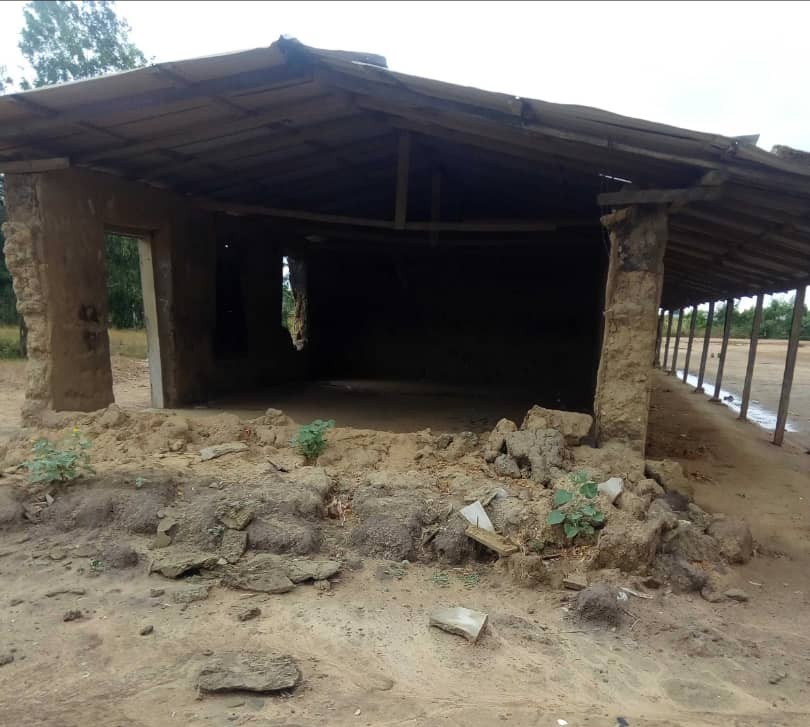By: Tabitha Kugbonu | Voltaonlinegh |
Education does not only improve our personal life but also bring amazing positive change in society and the nation as a whole. It is the best tool for facing any situation throughout life.
The right to education makes it compulsory for all children to get the basic education.
According to the International Standard Classification of Education (ISCED), basic education comprises primary education and lower secondary education.
Universal basic education is regarded a priority for developing countries and is the focus of the Education for All movement led by UNESCO.
The United Nations Sustainable Development Goal No. 4 states that “Education is to ensure inclusive and equitable quality education and promote lifelong learning opportunities for all”.
However, some schools in the rural areas still lag behind as far as quality education is concerned due to a number of factors including lack of classroom infrastructure and inadequate provision of teaching and learning materials.
Dzebetato D/A Primary School (established in 1965) with an enrolment of 206 from Kindergarten (KG) 1 to Primary 6 is one of the few schools sited in the rural areas in the South Tongu District of the Volta Region, and is plagued with infrastructural challenges forcing pupils to learn in dilapidated classrooms.
The situation gets worse during raining seasons. Reptiles find their ways into the classrooms while teaching and learning go on chasing the pupils away from their studies.
Sources reveal that the KG pupils as well as the Junior High School (JHS) do not have classroom blocks. For the community not to look unconcerned, they built a three-unit classroom block made with mud for the JHS pupils to use which unfortunately, collapsed in the third term of the 2018/2019 academic year.
The community again started a two-unit classroom block (currently 50 per cent completed) for pupils of KG 1-2 which the South Tongu District Assembly had supported with GH¢ 1,500.00
In an interview with Head teacher of the school, Solomon Adziman, he said the Dzebetato Community “is doing well to help the school to progress.”
Mr. Adziman said although they were faced with infrastructural challenges in the school, performance during Basic Education Certificate Examination (BECE) which the students started writing in 2017, had so far been good saying, the school “is one of the best in the Agave Circuit.”
He said apart from the infrastructural challenges (which is a disincentive to school enrolment), the school was also not benefiting from the Ghana School Feeding Programme (GSFP) which started in 2005.
Out of 212 public basic schools in the district, only 56 are benefiting from the programme being implemented for the purpose of eradicating extreme poverty and hunger and achieving universal primary education by providing public primary schools with one hot meal, prepared from locally grown foodstuffs every school-going day.
Mr. Adziman stated that, he and the Assembly member for Dzebetato Electoral Area, Jessi Kpodo and former Assembly member, Patrick Doe had written several proposals to the assembly requesting for the school to benefit from the programme but yielded no results.
He said this was having negative impacts because the pupils would always leave for their homes to have lunch and take a long time to return to the school for lessons to resume.
He therefore appealed to the authorities of the assembly to help address these challenges because basic education “is the foundation for all other levels of education” and the lives of future leaders at the basic level should not be toiled with.
In March, 2019, when the Volta River Authority (VRA) handed over a 30 Standalone Biofil Toilet Facility to the people of Dzebetato community to fight against Bilharzia and sanitation related issues, District Chief Executive for the area, Emmanuel Louis Agama in a speech, promised the school to find a lasting solution to their plight.
However, it has been several months and another academic year has started but nothing has been done about the situation.
According to American Muslim Minister Malcolm X, and human rights activist, “education is the passport to the future for tomorrow belongs to those who prepare for it today.”
If only government will be serious with education in the rural areas through implementing attractive policies, provision of infrastructure facilities, resources, teaching and learning materials and with the right incentives for teachers there, the story will be different where pupils and teachers alike will feel comfortable in school for effective teaching and learning.
This will reduce school dropout rate, ensure quality education and improved performance and eventually better the living conditions of society.
In the end, government benefits as citizens are better placed to understand government’s policies and support their implementation for the overall good of the nation.
Source: www.voltaonlinegh.com




